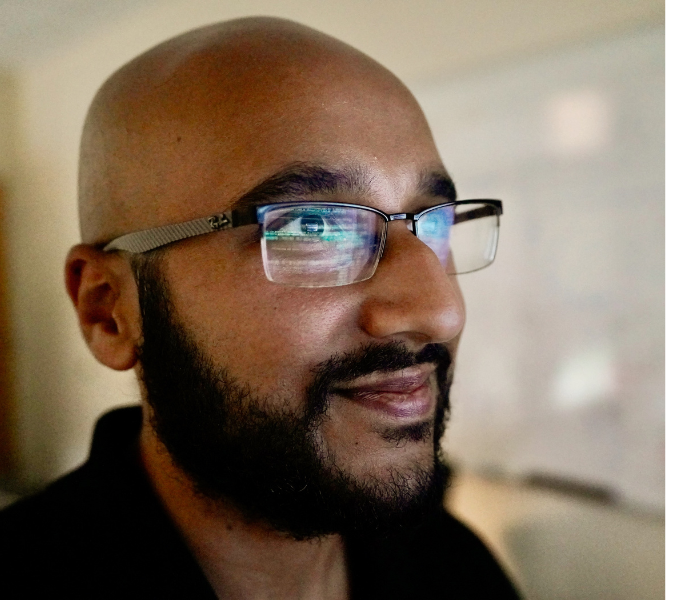What I Do - Abhinav Suri

My research lies at the intersection of medicine and artificial intelligence. I’m currently in medical school at UCLA. I paused my studies to spend a year at NIH in the Medical Research Scholars Program. The program is meant to give medical students a look into the life of a research scientist.
I’ve been working in Dr. Ronald Summers' Imaging Biomarkers and Computer-Aided Diagnosis Laboratory here in the Clinical Center’s Radiology Department. My projects are focused on artificial intelligence applied to radiology, specifically in diabetes and how screen for that on CT scans.
Suppose a patient comes into the ER with a suspected kidney stone. They’ll get a CT scan to confirm the diagnosis. That’s great. But think for a minute: You’ve given this patient a radiation dose, and you’re doing nothing with all the other body regions that are imaged in that scan. So why don’t we use that existing CT scan and try to mine it for other diagnoses?
In the case of my project, we’re looking at the pancreas. Can we tell just by looking at the scan if this person already has diabetes or a risk for diabetes? That’s the whole idea of opportunistic screening—using imaging that was done for one purpose and then reusing it to extract other diagnoses for that patient. It’s estimated that 20 percent of all U.S. adults who have diabetes are undiagnosed. That is a shocking statistic. Even with frequent blood tests, a lot of people aren’t correctly diagnosed. So we have to investigate other methods of screening for these patients. Imaging is one relatively easier way that we could do it.
Dr. Summers' lab had previously determined that there were some features of the pancreas that are correlated with diabetes. But now the question was, can we use deep learning-based approaches to make it more accurate? I’ve been leading the project on that this past year. We don’t know specifically what the deep learning algorithm is paying attention to. But we can say that specific regions of the pancreas contribute more towards the AI’s decision-making process.
As an undergraduate, I double majored in computer science and biology. I got an offer to work for a startup one summer. The project was intellectually interesting and challenging, but its human impact was very indirect. It would be saving someone a few minutes of time. It made me ask myself, what do I want to do in my life? I later joined a friend, who was a clinical volunteer. I saw him interact with a patient. That personal interaction stuck with me. I knew in my future career that’s what I wanted to do.
Abhinav Suri was a member of the 2023–24 NIH Medical Research Scholars Program.
-Interview by Sean Markey.

